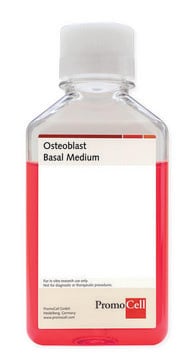CLS3830
Corning® spheroid microplates
384 well, round black/clear bottom, ULA (Ultra-Low Attachment surface), lid, sterile
Synonym(s):
3D cell culture plates, Spheroid culture plates
About This Item
Recommended Products
material
clear bottom
polystyrene
round black/clear bottom
sterility
sterile
feature
lid
skirt
Specific plates for 3D cell culture
ULA (Ultra-Low Attachment surface)
packaging
pkg of 10 ea
pkg of 50 ea
manufacturer/tradename
Corning 3830
well volume
90 μL
wells
384 wells
working volume
20-80 μL
binding type
(ultra-low attachment)
Looking for similar products? Visit Product Comparison Guide
General description
- Optically clear round bottom with black opaque microplate body
- Covalent attachment of Ultra-Low Attachment surface to reduce cellular adhesion to well surface
- Novel proprietary well geometry aids formation of spheroids in center of well
- Unique design that shields each well to minimize well-to-well cross talk
Key Benefits:
- Uniform, single spheroid formation across all wells
- Centering of the spheroid in each well enables automated visualization
- Culture and assay spheroids in the same microplate, without the need for transfer to a new plate
- Ease of media exchange or treatment with test compounds/drugs
Legal Information
Certificates of Analysis (COA)
Search for Certificates of Analysis (COA) by entering the products Lot/Batch Number. Lot and Batch Numbers can be found on a product’s label following the words ‘Lot’ or ‘Batch’.
Already Own This Product?
Find documentation for the products that you have recently purchased in the Document Library.
Customers Also Viewed
Articles
Discover how Corning® Spheroid Microplates played a key role in the use of use of 3D cell cultures for in vitro drug discovery assay.
3D cell culture overview. Learn about 2D vs 3D cell culture, advantages of 3D cell culture, and techniques available to develop 3D cell models
Our team of scientists has experience in all areas of research including Life Science, Material Science, Chemical Synthesis, Chromatography, Analytical and many others.
Contact Technical Service










